The Wagner bicentenary dominates this year's Proms, with no less than seven of his major operas in the schedule. The tribute began on Monday with the first instalment of Daniel Barenboim's Ring cycle, imported from Berlin and a momentous undertaking on several counts. This is the first time the tetralogy has been given complete in a single Proms season and – rather surprisingly given his association with the composer's work – the first time Barenboim has conducted any of Wagner's operas in the UK. It also marks the long overdue Proms debut of the Staatskapelle Berlin, one of the finest Wagner orchestras in the world.
On magisterial form, Barenboim allowed the score to unfold as a single organic span, seamless in its progress and perfectly proportioned. Speeds were measured yet urgent, belying his reputation as being, on occasion, a slow-ish Wagnerian. Interpretatively, he avoided the idea, favoured by some, that Das Rheingold should be played as the darkly comic prelude to subsequent tragedy. In this instance, Wagner's seriousness of purpose was soon very apparent, with the sensuality of the opening giving way to increasingly metallic textures as the protagonists, one by one, give up their ideals of love and desire for the sake of money and power. Dynamics, meanwhile, were carefully controlled, so that none of the cast was at any point overwhelmed by the orchestra.
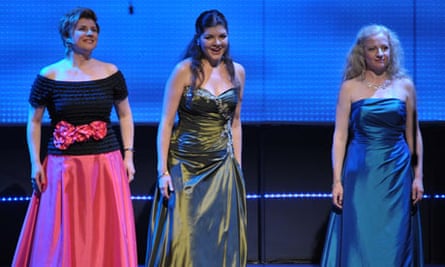
Even so, the singing was variable. Iain Paterson's Wotan and Johannes Martin Kränzle's Alberich were both short on vocal weight and fullness of tone. Kränzle, a fine actor, charted Alberich's descent into sadism and bitterness with great vividness. Paterson, however, took time to establish Wotan's innate authority, but did some fine things in the last two scenes, as moral failure brings self-awareness in its wake.
There were weaknesses as well as strengths elsewhere. Stephan Rügamer's Loge, kitted out in a 70s flared suit and orange kipper tie, was less dangerous than most, while Anna Samuil's shrill Freia dropped many of her consonants. The rest of the gods' contingent were impressive, however. Ekaterina Gubanova made a sensually imperious Fricka, while Marius Vlad's vainly preening Froh was nicely foiled by Jan Buchwald's bully-boy Donner. Stephen Milling's infinitely touching Fasolt, meanwhile, was paired with Eric Halfvarson's truly sinister Fafner.
And Aga Mikolaj, Maria Gortsevskaya and Anna Lapkovskaja formed the finest trio of Rhinemaidens to be heard for ages.
Listen again on iPlayer until 29 July.
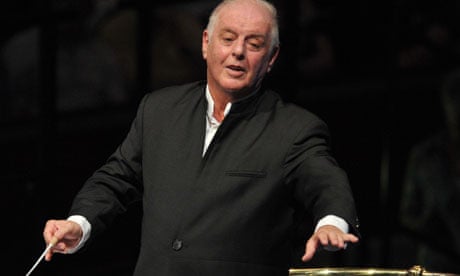
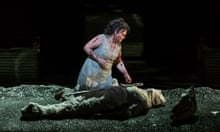


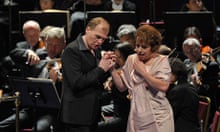
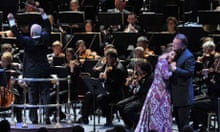
Comments (…)
Sign in or create your Guardian account to join the discussion